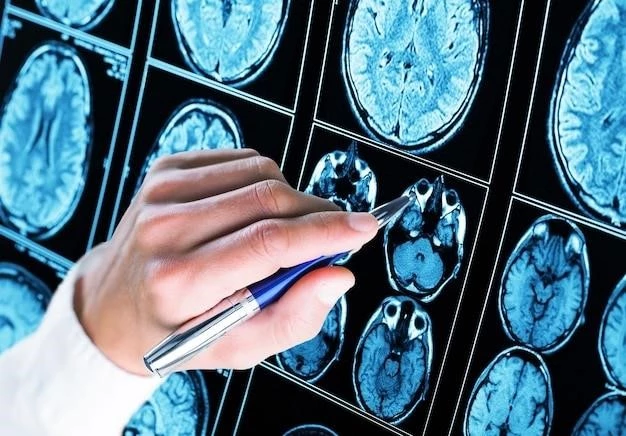Overview of Cerebro Oculo Skeleto Renal Syndrome
Cerebro Oculo Skeleto Renal Syndrome is a rare genetic disorder characterized by a
combination of physical‚ neurological‚ and renal abnormalities.
Introduction to Cerebro Oculo Skeleto Renal Syndrome
Cerebro Oculo Skeleto Renal Syndrome‚ commonly known as CORS syndrome‚ is a complex condition affecting various systems in the body. It presents challenges in diagnosis and management due to its multisystem involvement.
Cause of Cerebro Oculo Skeleto Renal Syndrome
The exact etiology of Cerebro Oculo Skeleto Renal Syndrome is attributed to genetic mutations affecting the development of various organs and systems. These mutations play a crucial role in the pathogenesis of the syndrome.
Genetic Causes of Cerebro Oculo Skeleto Renal Syndrome
The syndrome is primarily caused by genetic mutations impacting multiple systems.
Genetic Mutations in Cerebro Oculo Skeleto Renal Syndrome
The syndrome is linked to mutations in genes responsible for proper organ development‚ affecting the brain‚ eyes‚ skeleton‚ and kidneys. Understanding these genetic alterations is crucial for diagnosis and management.

Clinical Features of Cerebro Oculo Skeleto Renal Syndrome
The syndrome presents with a spectrum of physical and neurological manifestations.
Physical Features
Cerebro Oculo Skeleto Renal Syndrome is characterized by distinctive facial features‚ skeletal abnormalities‚ and ocular anomalies. These physical signs are key diagnostic markers for the condition.
Neurological Features
Individuals with Cerebro Oculo Skeleto Renal Syndrome may experience intellectual disability‚ developmental delays‚ and neurological issues such as seizures. Close neurological monitoring is essential for comprehensive management.
Diagnosis and Screening for Cerebro Oculo Skeleto Renal Syndrome
Accurate diagnosis relies on clinical evaluation‚ imaging studies‚ and genetic testing.
Diagnostic Procedures
Diagnosis of Cerebro Oculo Skeleto Renal Syndrome involves a combination of physical exams‚ imaging techniques like MRI scans‚ and genetic testing to identify specific mutations. Early and accurate diagnosis is crucial for optimal management.
Screening Guidelines
Screening for Cerebro Oculo Skeleto Renal Syndrome typically involves genetic counseling‚ thorough physical examinations‚ and the utilization of specialized imaging studies. Following established screening protocols aids in the early detection and management of this complex syndrome.
Treatment Options for Cerebro Oculo Skeleto Renal Syndrome
Management centers on medical interventions and supportive care measures.
Medical Interventions
Treatment of Cerebro Oculo Skeleto Renal Syndrome involves a multidisciplinary approach‚ including medications to manage symptoms such as seizures and renal complications. Individualized medical interventions aim to address the specific needs of each patient.
Supportive Care
Individuals with Cerebro Oculo Skeleto Renal Syndrome benefit from psychosocial support to cope with the challenges of the condition. Caregiver support programs also play a critical role in ensuring the well-being of both patients and families.
Research Advances in Cerebro Oculo Skeleto Renal Syndrome
Ongoing studies aim to enhance understanding and treatment options for the syndrome.
Current Research Studies
Current research initiatives focus on identifying novel therapeutic targets and enhancing diagnostic strategies for Cerebro Oculo Skeleto Renal Syndrome. Collaborative efforts aim to improve patient outcomes and quality of life through innovative approaches.
Complications Associated with Cerebro Oculo Skeleto Renal Syndrome
The syndrome can lead to systemic and organ-specific complications.
Systemic Complications
Cerebro Oculo Skeleto Renal Syndrome can result in systemic issues affecting various organs‚ such as the cardiovascular system and urinary tract. Prompt recognition and management of these complications are crucial in the care of affected individuals.
Organ-Specific Complications
Organ-specific complications in Cerebro Oculo Skeleto Renal Syndrome involve the eyes‚ skeleton‚ and kidneys. Monitoring and targeted interventions are essential to address these specific issues and improve patient outcomes.
Supportive Care for Individuals with Cerebro Oculo Skeleto Renal Syndrome
Patient-centered care and comprehensive support are essential for optimal outcomes.
Psychosocial Support
Psychosocial support is crucial for individuals with Cerebro Oculo Skeleto Renal Syndrome and their families to navigate the emotional and social challenges associated with the condition. Counseling and support groups play a vital role in promoting mental well-being and resilience.
Caregiver Support
Caregiver support programs provide essential assistance and resources for individuals caring for those with Cerebro Oculo Skeleto Renal Syndrome. Education‚ respite care‚ and access to support networks contribute to the well-being of caregivers‚ thereby enhancing the overall quality of care for patients.
